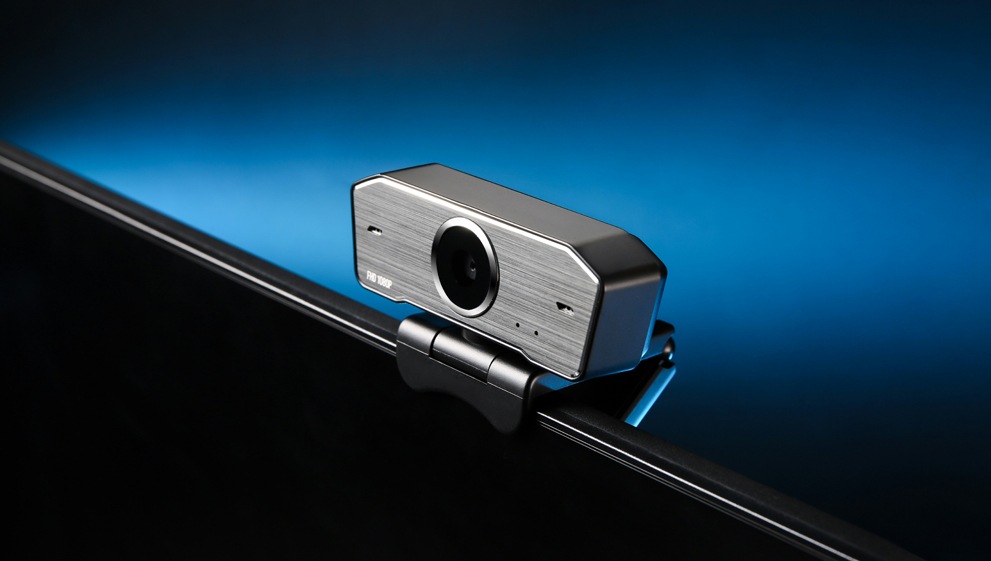At home, you expect privacy, but webcam hacking can turn your personal space into a target for snoopers. Unfortunately, webcam hacking is a growing concern, turning this private space into a potential surveillance ground. Webcam hacking statistics show that 79% of people know their webcam can be hacked, but only 59% cover it when not used. With a hacking attempt occurring every 39 seconds, the risks are real.
From stealing personal information to more sinister acts like blackmail, the consequences of webcam hacking can be severe. It’s crucial to understand the risks and take steps to protect yourself. This guide will help you identify potential signs of a webcam hack, understand how antivirus software can shield you, and provide essential tips to safeguard your privacy.
How to Know if Your Webcam is Hacked?
Understanding the signs of a compromised webcam is crucial for protecting your privacy. Here are some common indicators to watch for:
Unexpected Activation
One of the first signs your webcam might be hacked is unexpected activation. If your webcam light turns on by itself, it could mean someone else is controlling it. Always be alert to these sudden activations.
Unusual Behavior
Pay attention to any unusual behavior from your webcam. For example, if it moves or focuses on its own, or if you hear strange noises, these could be signs your webcam has been hacked.
Software Anomalies
Keep an eye out for any unexplained changes in your webcam settings or software. For instance, if you suddenly find new apps installed that use your webcam, or if your webcam’s default resolution or quality has changed without your input, it could be a sign of trouble. Also, be wary of unexpected changes to your webcam’s privacy settings. If you notice any of these anomalies, it’s a strong indicator that your webcam might be compromised.
Network Activity
Unusual network activity can also be a sign of webcam hacking. Look for unauthorized access attempts or sudden spikes in data usage. While it’s difficult to pinpoint an exact amount of increased data usage linked to webcam hacking, a significant and unexplained jump in your data consumption could be suspicious. To monitor your network activity, you can check your internet service provider’s (ISP) usage reports or use network monitoring tools available for your operating system.
For instance, if someone uses a method to hack your webcam using IP, it might result in unusual data patterns. If you see any unexpected spikes, it might be due to webcam hacking software.
How Antivirus Software Protects Against Webcam Hacking?
Antivirus software is essential in protecting against webcam hacking. For instance, Quick Heal Total Security offers real-time monitoring and detection capabilities. It scans your system for malware, ransomware, and unauthorized access attempts, ensuring your webcam remains secure. It also provides alerts and blocks suspicious activities, keeping you informed and protected.
Antivirus software is your best friend when it comes to webcam hacking protection. Here’s how it helps:
- Real-time monitoring: Your antivirus software acts like a watchful eye, continuously scanning your system for any suspicious activity targeting your webcam. It works tirelessly to protect your privacy by detecting and blocking potential threats.
- Malware detection: These digital defenders are experts at identifying and removing malicious software that could hijack your webcam. They prevent these sneaky intruders from taking control.
- Firewall Protection: Think of your antivirus software’s firewall as a sturdy shield, blocking unwanted visitors from accessing your webcam. It’s your first line of defence against online threats.
- Detects Unusual Activity: Your antivirus software is smart enough to spot unusual patterns that might indicate a webcam hack. It’s like having an extra set of eyes that can catch even the smallest signs of trouble.
- Stays Updated: Antivirus software regularly updates its defences, ensuring it can protect you from the latest webcam hacking tricks. It’s like having a team of experts constantly researching new threats.
Best Practices for Webcam Security
Protecting your webcam requires a proactive approach. By following these essential steps, you can significantly reduce the risk of unauthorized access:
- Watch Out for Phishing Scams: Hackers often use deceptive emails and links to lure you into clicking on malicious content. Be cautious of unexpected emails or suspicious links, and avoid clicking on them if you’re unsure of their authenticity. For instance, a Google webcam hack might be initiated through a phishing link.
- Update Your Devices: Regularly installing software updates is crucial for plugging security holes. Hackers often exploit vulnerabilities in outdated software, so keeping everything up-to-date is essential.
- Cover Your Webcam: When you’re not using your webcam, physically cover it with a lens cap or piece of tape. This simple act can deter potential hackers.
- Use Strong Passwords: Protect your devices with strong, unique passwords that are difficult to guess. Avoid reusing passwords across different accounts.
- Turn on Your Firewall: A firewall acts as a shield, blocking unauthorized access to your device. Make sure it’s turned on and updated for optimal protection.
- Stay Informed and Use a VPN: Keep up-to-date on the latest webcam hacking threats to safeguard your privacy. Consider using a Virtual Private Network (VPN) to encrypt your internet connection and add an extra layer of protection against potential hackers. By staying vigilant and taking proactive steps, you can significantly reduce the risk of unauthorized webcam access.
Conclusion
Webcam hacking is a serious threat to your privacy. By understanding the signs of a compromised webcam, taking proactive steps, and utilizing robust security measures, you can significantly reduce the risk of unauthorized access. Remember, your digital well-being is in your hands!
For comprehensive protection against webcam hacking and other cyber threats, consider exploring options like Quick Heal Total Security. It offers a range of features designed to safeguard your personal information and online activities.
By prioritizing your digital security, you empower yourself to enjoy a safer online experience. Check out Quick Heal for just Rs. 1591 for 1 year!


